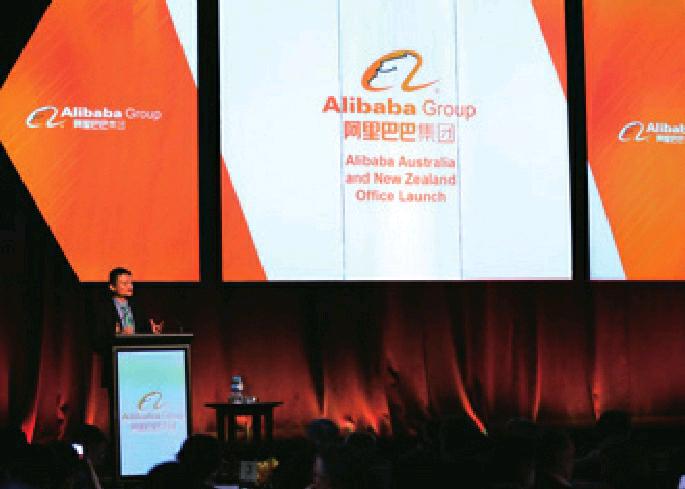Rapid Growth of the New Real Economy Must Be Protected

A recent front-page article in Peoples Daily referred to a new concept while reporting significant changes in the real economy of Zhejiang Province—the new real economy. The report said Zhejiang is doing its utmost to support the new real economy.
With the Zhejiang-based e-commerce giant Alibaba Group as a representative, the new real economy is rising rapidly. In 2016, Alibaba Group and its financial branch paid 23.8 billion yuan ($3.45 billion) in taxes. Moreover, the merchants operating on its platforms, upstream manufacturers and logistics companies paid at least 200 billion yuan ($29.03 billion) in taxes, which was equivalent to the tax paid on the total sales of 4,000 large department stores, and created more than 30 million job opportunities.
This might mark an end to the prolonged debate over the real economy and the fi ctitious economy.
During the annual sessions of the National Peoples Congress (NPC) and the National Committee of the Chinese Peoples Political Consultative Conference (CPPCC) this year, some NPC deputies and CPPCC National Committee members who are also heads of manufacturing giants said the real economy is “ignored” now. They claimed that the fictitious economy is “rampant”—mainly referring to e-commerce platforms, the sector in which China has a global lead.
It is right to call for a crackdown on fake goods sold on e-commerce platforms, but while arguing about the real and the fictitious economy, those big shots seemed to have attacked the wrong target. They were confused about the concepts of the real and fictitious economy, and mistook e-commerce platforms for part of the fi ctitious economy. So their attacks were misdirected.
Manufacturing, logistics and sales are all part of the real economy in different links. The difference is only between traditional production and sale methods and new production and sale methods, also called the traditional economy and the new economy.
Production, logistics and sale should be closely connected and jointly promoted. E-commerce platforms, a new sales method, offer a more convenient and efficient sales channel for manufacturers and are supposed to boost the development of manufacturers.
What is the fictitious economy? The financial sector is usually referred to as the fi ctitious economy. For example, at the China Development Forum 2017 held in Beijing in March, He Lifeng, Chairman of the National Development and Reform Commission, and Miao Wei, Minister of Industry and Information Technology, raised the same view. They said the fi nancial sector and the real economy are unbalanced, and capital is moving from the real economy to the fictitious economy, increasing risks in the financial system and intensifying financing diffi culties for the real economy.
Peoples Daily, the most authoritative media outlet in China, described e-commerce platforms represented by Alibaba as the new real economy, which is of great signifi cance.
The rapid growth of Chinas e-commerce can be clearly felt in comparison with its counterparts in Europe and the United States. The Internet was invented in the United States, and mobile phones were also fi rst used there. But the United States never imagined that China would do so well in terms of e-commerce.
As the worlds second largest economy, China has developed e-commerce much faster than other countries. E-commerce in China is more convenient partly because the nations logistics outshines those of Europe and the United States. Therefore we should protect and maintain fast growth of the world-leading new real economy, which we should be proud of, instead of nitpicking.

